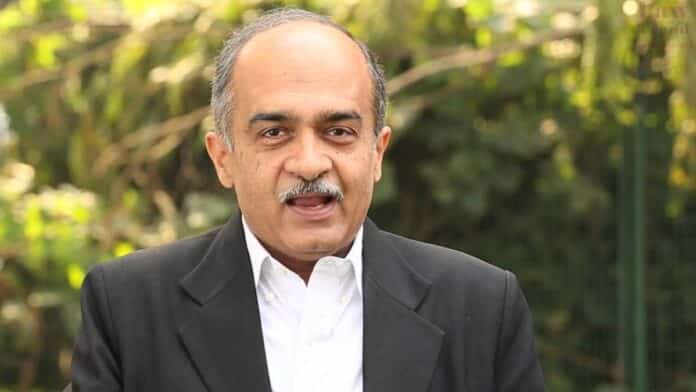Prominent Indian lawyer Prashant Bhushan, known for taking on contentious cases, has moved to the Supreme Court after his petition was rejected by the Delhi High Court. In the apex court, Bhushan has filed a petition challenging the constitutional validity of a provision in the Passport Law, specifically citing concerns over its implications on the rights of citizens. The Supreme Court has postponed the hearing to after the summer vacation, with proceedings set to resume on July 8.
The bench of Justice Abhay S Oka and Justice Ujjwal Bhyan deferred the case due to the unavailability of the petitioner’s senior advocate, Jayant Bhushan. Previously, the Supreme Court had issued notices to the Central Government and the Ghaziabad Regional Passport Office in response to Bhushan’s petition.
Bhushan’s challenge focuses on Section 6(2)(F) of the Passport Act, which had been amended by a 1993 notification. This amendment stipulates that passports can be issued if the applicant presents a No Objection Certificate (NOC) from the relevant court. However, if the NOC lacks certain information, the passport is only issued for one year. Bhushan’s lawyer argued in the Supreme Court that this provision does not adequately distinguish between serious and less serious offenses, and imposes similar restrictions on all new passport holders, thereby violating the right to equality.

The case traces back to an incident where Bhushan was involved in a protest in Ghaziabad, leading to legal proceedings against him. Following this, the Regional Passport Office issued him a passport valid for only one year, treating him similarly to those charged with serious offenses despite the charges against him not being severe. This prompted Bhushan to challenge the decision initially in the Delhi High Court.
Also Read
In 2016, the Delhi High Court had dismissed a similar petition by Bhushan, which had also contested the constitutional validity of Section 6(2)(F) of the Passport Act of 1967. As the legal battle continues, the outcome of the Supreme Court’s deliberations will be closely watched, potentially setting a significant precedent regarding the rights of individuals facing legal charges and their ability to travel internationally.







